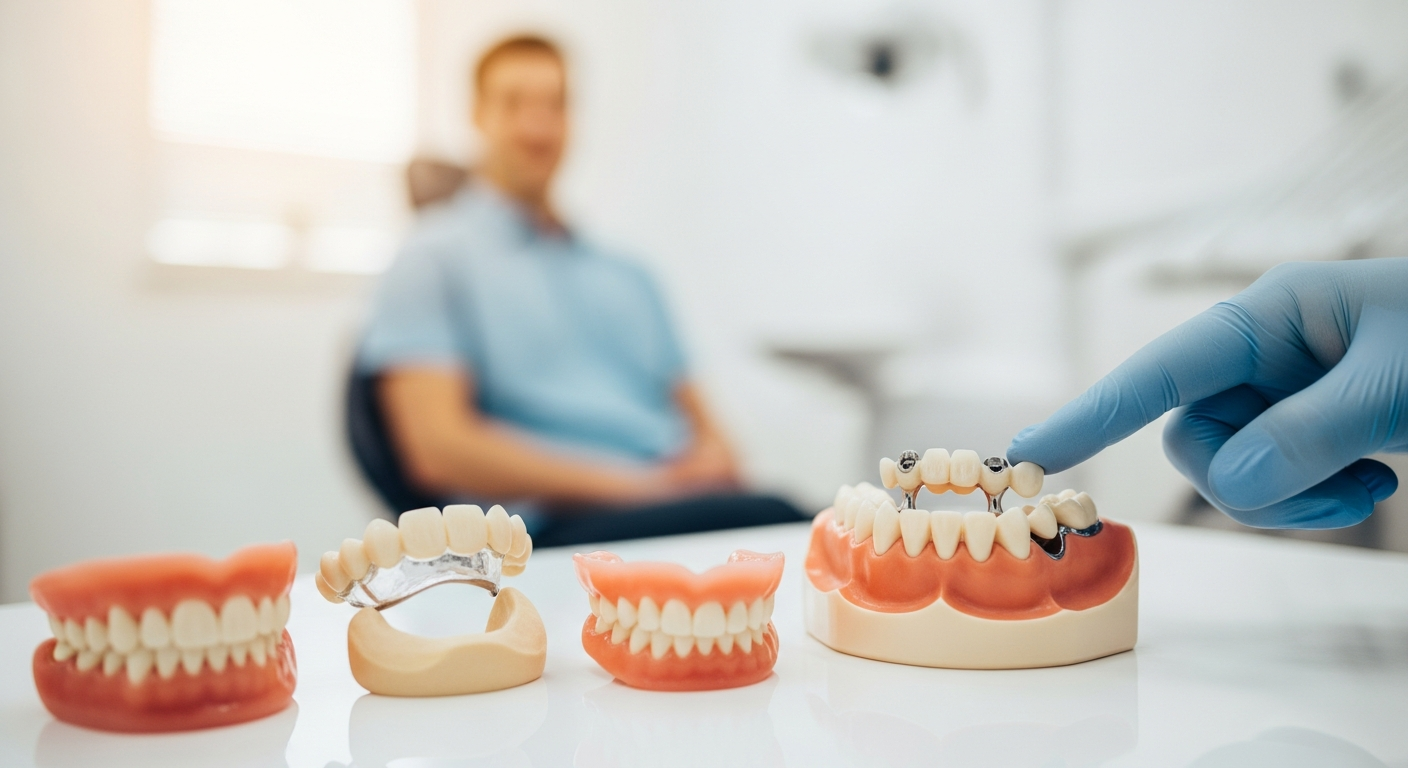Clinics Need Participants for Dental Implant Trials
Dental implant clinical trials present an opportunity for individuals to receive advanced care at minimal cost while contributing to essential research. Clinical trials provide expert supervision and cutting-edge technology, offering unique benefits and innovative treatment options. By participating, individuals access affordable dental solutions and support advancements in oral healthcare.

An Introduction to Dental Implant Clinical Trials
Dental implant clinical trials are scientific research studies that test new implant technologies, surgical techniques, or treatment protocols before they become widely available. These trials follow strict scientific protocols and ethical guidelines to ensure participant safety while gathering valuable data about the effectiveness of new dental implant approaches.
Clinical trials typically progress through several phases. Early phases focus on safety and feasibility with small groups of participants, while later phases involve larger groups to confirm effectiveness compared to existing treatments. Throughout the process, participants receive care from specialized dental professionals who are often leaders in implant dentistry research.
The primary goal of these trials is to improve dental implant outcomes by developing more effective materials, less invasive surgical techniques, faster healing times, or improved long-term success rates. By participating, individuals not only gain access to potentially superior treatment options but also contribute to advancing dental healthcare for everyone.
Key Benefits of Participating in Clinical Trials
Participating in dental implant clinical trials offers several compelling advantages that make them worth consideration for suitable candidates. First and foremost is the financial benefit. Many trials provide the implant treatment at significantly reduced costs or sometimes even free of charge, making this otherwise expensive procedure more accessible.
Another significant advantage is the quality of care. Trial participants typically receive treatment from highly skilled specialists using the latest equipment and techniques. The care is often more comprehensive than standard treatment, with additional follow-up appointments and monitoring to track progress meticulously.
Participants also gain early access to innovative treatments that might not be available to the general public for several years. These cutting-edge implants or techniques may offer advantages over conventional options, such as improved aesthetics, faster healing, or better integration with natural bone.
Finally, there’s the altruistic benefit of contributing to dental science. By participating, individuals help researchers gather essential data that could improve dental implant treatments for countless future patients.
Eligibility and Requirements for Clinical Trial Participation
Not everyone qualifies for dental implant clinical trials, as researchers need participants who match specific criteria to ensure valid results. Most trials have both inclusion and exclusion criteria that determine eligibility. Common requirements include:
Age requirements typically range from 18 to 75 years, though this varies by study. Participants generally need to be in good overall health, without conditions that might interfere with healing or follow-up care. Good oral hygiene habits are essential, as is a commitment to following trial protocols.
The nature and extent of tooth loss must match the trial’s focus—some studies recruit participants missing single teeth, while others look for those needing full-arch replacements. Sufficient jawbone volume is typically necessary, though some trials specifically test solutions for patients with bone loss.
Participants must commit to attending all scheduled appointments throughout the trial period, which may last from several months to several years. This includes initial assessments, the implant procedure, and multiple follow-up visits to monitor progress.
Understanding the Costs and Financial Benefits of Clinical Trials
Participating in dental implant clinical trials can significantly reduce the financial burden of implant treatment, but costs vary widely depending on the specific study and sponsor.
The financial structure of trials ranges from fully funded studies where participants receive free treatment to partial coverage where participants pay reduced fees for certain aspects of care. Some trials may cover the implant and surgery costs but require participants to pay for final restorations like crowns or bridges.
| Trial Type | Typical Cost Saving | Participant Responsibility |
|---|---|---|
| Fully funded | 100% (Free treatment) | Follow-up visits only |
| Partially subsidized | 50-75% discount | Portion of procedure costs |
| Material trials | Free implant hardware | Surgery and restoration costs |
| University-based | 30-60% discount | Partial payment, longer time commitment |
Prices, rates, or cost estimates mentioned in this article are based on the latest available information but may change over time. Independent research is advised before making financial decisions.
In comparison, standard dental implants in Canada typically cost between $3,000 and $6,000 per tooth when not participating in a clinical trial, making the potential savings substantial for qualified participants.
The Clinical Trial Process: What to Expect
The journey through a dental implant clinical trial follows a structured pathway designed to ensure both scientific validity and patient safety. Initially, potential participants undergo comprehensive screening, including dental examinations, medical history reviews, and often 3D imaging of the jaw to determine suitability.
Those who qualify receive detailed information about the trial’s purpose, procedures, potential risks, and benefits during the informed consent process. This critical step ensures participants make educated decisions about their involvement, with ample opportunity to ask questions before committing.
The treatment phase typically follows standard implant protocols—surgical placement followed by a healing period, then attachment of the restoration—but may incorporate the experimental aspects being studied. Throughout treatment and follow-up, participants undergo regular evaluations that may include clinical examinations, radiographs, and quality-of-life questionnaires.
Documentation is meticulous, with all observations, complications, and outcomes carefully recorded. This attention to detail not only ensures participant safety but also generates the valuable data that makes the research worthwhile.
Why You Should Learn More About Clinical Trials for Dental Implants Today
The field of dental implantology continuously evolves, with researchers constantly developing innovations to improve patient outcomes. By exploring clinical trial participation now, individuals can position themselves at the forefront of these advances while addressing their own dental needs.
The financial advantages alone make learning about trials worthwhile, especially considering the high cost of standard implant treatment. For those who might otherwise delay necessary dental care due to financial constraints, clinical trials can provide access to quality treatment that would otherwise remain out of reach.
Beyond personal benefits, participation contributes to the broader advancement of dental science. Today’s clinical trial participants help develop treatments that may become tomorrow’s standard of care, potentially improving outcomes for countless future patients facing tooth loss.
For those interested, the first step is simple: contact local dental schools, implant centers, or research institutions to inquire about ongoing or upcoming trials. Many maintain lists of potential participants they contact when suitable studies begin. Taking this initiative today could lead to both personal benefits and a meaningful contribution to dental healthcare advancement.
This article is for informational purposes only and should not be considered medical advice. Please consult a qualified healthcare professional for personalized guidance and treatment.




